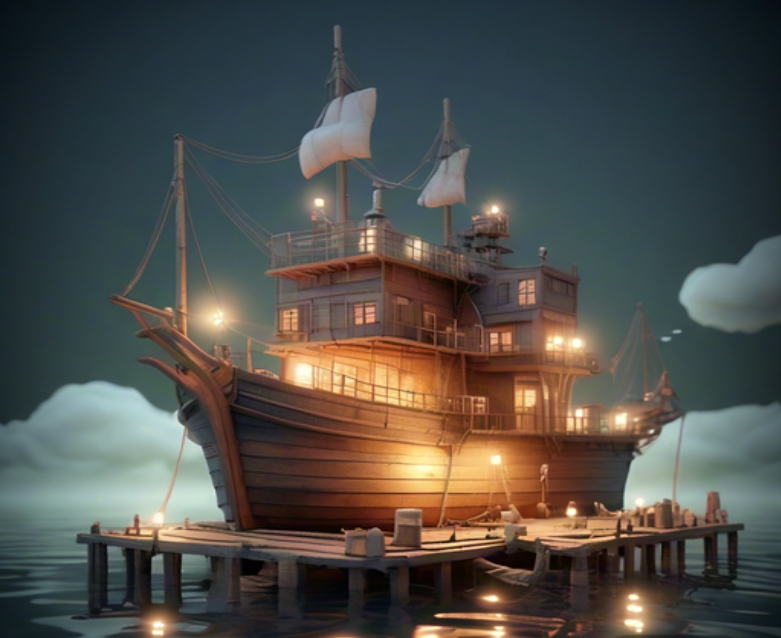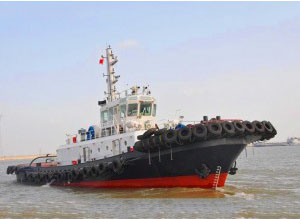BLOG
13 Leading Shipbuilding Countries in 2024: A Global Overview
Shipbuilding is a vital industry that influences global trade, military capabilities, and economic development. The process involves the construction of various types of ships, including commercial vessels, military ships, and specialized crafts. In this article, we will explore the 13 leading shipbuilding countries in 2024, highlighting their strengths, key players, and contributions to the industry.
The Importance of Shipbuilding

Economic Impact
Shipbuilding significantly contributes to the economic growth of a country by providing jobs, boosting exports, and fostering technological advancements.
Global Trade
The shipbuilding industry plays a crucial role in global trade by constructing vessels that transport goods across the world’s oceans, facilitating international commerce.
National Security
Many countries invest in shipbuilding to maintain and enhance their naval capabilities, ensuring their maritime security and defense readiness.
Top 13 Shipbuilding Countries in 2024
1. China
China continues to dominate the global shipbuilding industry, leveraging its massive industrial base and technological advancements.
Key Players:
- Peida Machinery Group Co., Ltd.: Located in China’s Yangtze golden waterway region, Peida Machinery Group specializes in designing, constructing, and trading a variety of ships including bulk shipping, container ships, passenger ships, oil tankers, chemical ships, tugs, fiberglass boats, and various engineering ships. The company also deals in second-hand ships and is approved by various Classification Societies, ensuring compliance with diverse client needs.
Strengths:
- Large-scale production capacity
- Advanced shipbuilding technology
- Strong government support
2. South Korea
South Korea is renowned for its high-quality shipbuilding, focusing on innovative designs and advanced technologies.
Key Players:
- Hyundai Heavy Industries
- Samsung Heavy Industries
- Daewoo Shipbuilding & Marine Engineering
Strengths:
- Leading in LNG carriers and offshore structures
- High efficiency and productivity
- Strong R&D capabilities
3. Japan
Japan has a long-standing tradition in shipbuilding, known for its precision and innovation.
Key Players:
- Mitsubishi Heavy Industries
- Imabari Shipbuilding
- Japan Marine United
Strengths:
- Technological innovation
- High-quality standards
- Strong environmental focus
4. Germany
Germany excels in building specialized ships, including luxury yachts and advanced naval vessels.
Key Players:
- Meyer Werft
- ThyssenKrupp Marine Systems
- Lürssen
Strengths:
- Precision engineering
- Strong focus on quality
- Innovation in specialized vessels
5. Italy
Italy is well-known for its luxury cruise ships and superyachts, combining craftsmanship with advanced technology.
Key Players:
- Fincantieri
- Ferretti Group
- Benetti
Strengths:
- Expertise in luxury vessels
- High-quality craftsmanship
- Strong design capabilities
6. The Netherlands
The Netherlands has a strong tradition in shipbuilding, particularly in dredging vessels and offshore support ships.
Key Players:
- Damen Shipyards Group
- Royal IHC
- Feadship
Strengths:
- Innovative designs
- Strong focus on sustainability
- Expertise in offshore and specialized vessels
7. Norway
Norway is a leader in building ships for the offshore oil and gas industry, including drilling rigs and supply vessels.
Key Players:
- Ulstein Group
- VARD
- Kongsberg Maritime
Strengths:
- Expertise in offshore vessels
- High standards of safety and reliability
- Strong focus on environmentally friendly solutions
8. United States
The United States has a diverse shipbuilding industry, producing both commercial and military vessels.
Key Players:
- Huntington Ingalls Industries
- General Dynamics NASSCO
- Bollinger Shipyards
Strengths:
- Advanced military shipbuilding
- Large-scale production capabilities
- Strong innovation and R&D
9. Brazil
Brazil’s shipbuilding industry is geared towards supporting its offshore oil and gas sector, with a focus on floating production storage and offloading (FPSO) units.
Key Players:
- Estaleiro Atlântico Sul
- BrasFELS
- Enseada Indústria Naval
Strengths:
- Expertise in FPSO units
- Strong support for the offshore industry
- Growing infrastructure
10. India
India’s shipbuilding industry is expanding rapidly, with a focus on both commercial and naval vessels.
Key Players:
- Cochin Shipyard Limited
- Mazagon Dock Shipbuilders
- L&T Shipbuilding
Strengths:
- Competitive labor costs
- Increasing government support
- Growing technological capabilities
11. Turkey
Turkey is emerging as a key player in the shipbuilding industry, especially in the production of smaller vessels and specialized ships.
Key Players:
- Istanbul Shipyard
- Sedef Shipbuilding
- RMK Marine
Strengths:
- Competitive pricing
- Strong focus on exports
- Expertise in specialized vessels
12. Vietnam
Vietnam’s shipbuilding industry is growing, supported by competitive labor costs and increasing technological advancements.
Key Players:
- Vinashin
- Damen Song Cam Shipyard
- Hyundai-Vinashin Shipyard
Strengths:
- Low labor costs
- Increasing technological capabilities
- Strong government support
13. Russia
Russia has a robust shipbuilding industry, focusing on icebreakers, submarines, and naval vessels.
Key Players:
- United Shipbuilding Corporation
- Sevmash
- Admiralty Shipyards
Strengths:
- Expertise in ice-class vessels
- Strong military shipbuilding
- Expanding commercial capabilities
Key Trends in the Global Shipbuilding Industry

2200HP tugboat
Technological Advancements
The shipbuilding industry is increasingly adopting advanced technologies such as automation, artificial intelligence, and the Internet of Things (IoT) to enhance efficiency, reduce costs, and improve safety.
Environmental Sustainability
There is a growing focus on building eco-friendly ships that comply with stringent environmental regulations. This includes the use of alternative fuels, energy-efficient designs, and emission reduction technologies.
Offshore and Specialized Vessels
The demand for offshore vessels, including those for oil and gas exploration and renewable energy projects, is on the rise. Shipbuilders are focusing on specialized vessels to meet these needs.
Modular Construction
Modular construction techniques are becoming more popular in shipbuilding, allowing for faster production times and improved quality control.
Global Collaboration
Shipbuilders are increasingly collaborating with international partners to share technology, expertise, and resources, fostering innovation and efficiency in the industry.
FAQs about Shipbuilding
1. What factors influence the cost of building a ship?
Several factors influence the cost of building a ship, including the size and type of vessel, the complexity of the design, the materials used, labor costs, and the level of technology and automation involved in the construction process.
2. How long does it typically take to build a ship?
The time required to build a ship depends on its size and complexity. On average, it can take anywhere from several months to a few years. For example, constructing a large cruise ship or a naval vessel can take around 2-3 years, while smaller commercial vessels may take less time.
3. What are the main challenges faced by the shipbuilding industry?
The shipbuilding industry faces several challenges, including fluctuating demand, competition from low-cost producers, rising material and labor costs, and stringent environmental regulations. Additionally, the industry must continually innovate to keep up with technological advancements and evolving market needs.
Conclusion
The shipbuilding industry remains a critical component of the global economy, driving trade, national security, and technological innovation. The leading shipbuilding countries in 2024 each bring unique strengths and capabilities to the table, contributing to a diverse and dynamic global market. As the industry continues to evolve, advancements in technology and a focus on sustainability will shape the future of shipbuilding, ensuring it remains a vital and vibrant sector.
BLOG
News
Contact Us
Contact: Peida Machinery Group Co. ,Ltd.
E-mail: info@peidaship.com
Tel: 0086 0556 5248992
Phone: 008618855615637
Add: City Anqing, Anhui Province